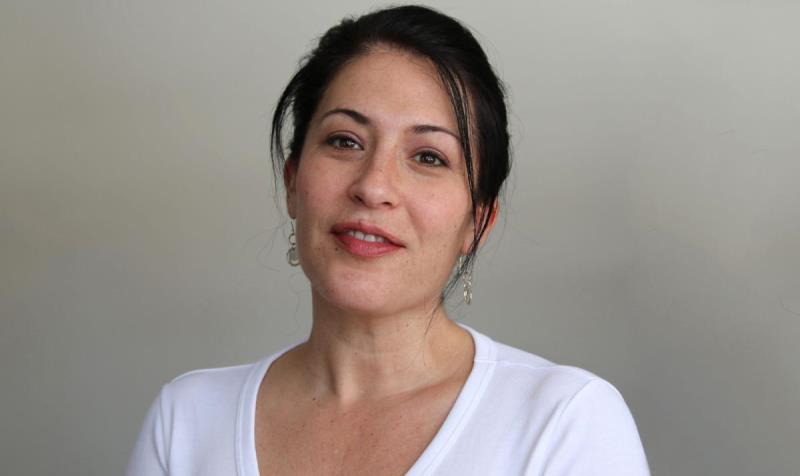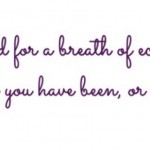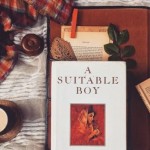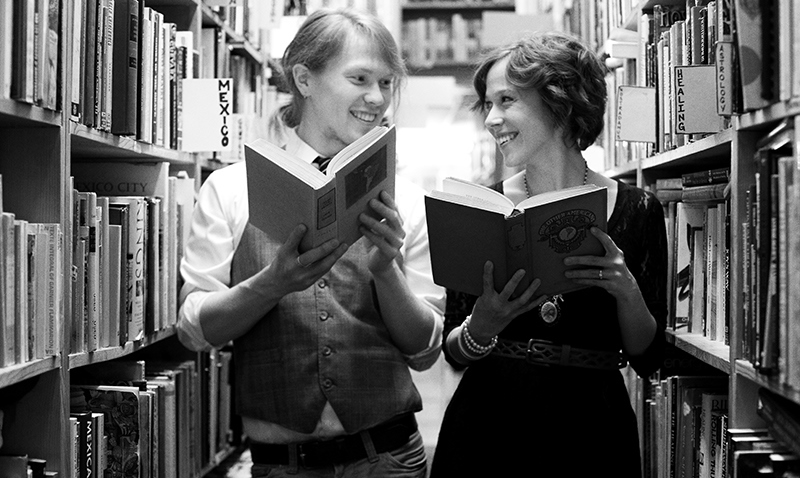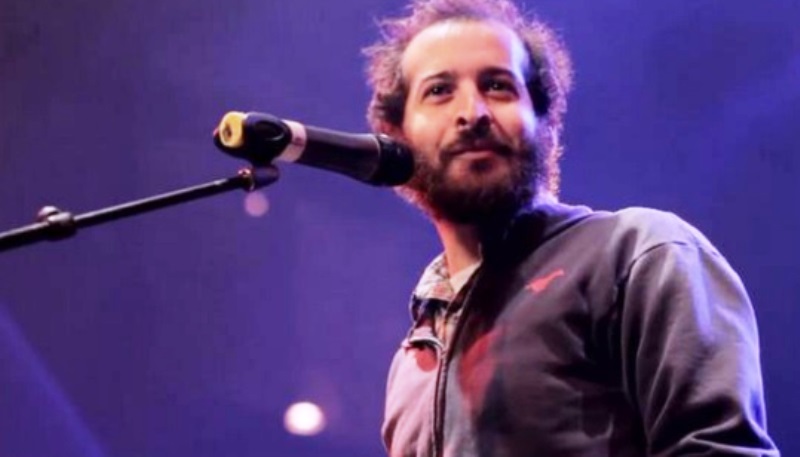According to Poetry Foundation,
“Ada Limón is the author of Lucky Wreck (2006), This Big Fake World (2006),Sharks in the Rivers (2010), and Bright Dead Things (2015), a finalist for the National Book Award and the National Books Critics Circle Award. She earned an MFA from New York University, and is the recipient of fellowships from the New York Foundation for the Arts, the Provincetown Fine Arts Work Center, and the Kentucky Foundation for Women. Her work has appeared in numerous publications including The New Yorker, the Harvard Review, Pleiades, and Barrow Street. Limón is on faculty of the Queens University of Charlotte Low Residency M.F.A program and the 24Pearl Street Online Program for the Provincetown Fine Arts Work Center. She splits her time between Kentucky, California, and New York.”
Today, we will be sharing with you some of the best best Ada Limón Poems that we think everybody must read.
Suggested read: “Let Us Catch The Next Tornado Home” And Other Poems By Mike McGee
Best Ada Limón Poems
- We Are Surprised
Now, we take the moon
into the middle of our brains
so we look like roadside stray cats
with bright flashlight-white eyes
in our faces, but no real ideas
of when or where to run.
We linger on the field’s green edge
and say, Someday son, none of this
will be yours. Miracles are all around.
We’re not so much homeless
as we are home free, penny-poor,
but plenty lucky for love and leaves
that keep breaking the fall. Here it is:
the new way of living with the world
inside of us so we cannot lose it,
and we cannot be lost. You and me,
are us and them, and it and sky.
It’s hard to believe we didn’t
know that before; it’s hard to believe
we were so hollowed out, so drained,
only so we could shine a little harder
when the light finally came.
- Torn
Witness the wet dead snake,
its long hexagonal pattern weaved
around its body like a code for creation,
curled up cold on the newly tarred road.
Let us begin with the snake: the fact
of death, the poverty of place, of skin
and surface. See how the snake is cut
in two—its body divided from its brain.
Imagine now, how it moves still, both
sides, the tail dancing, the head dancing.
Believe it is the mother and the father.
Believe it is the mouth and the words.
Believe it is the sin and the sinner—
the tempting, the taking, the apple, the fall,
every one of us guilty, the story of us all.
But then return to the snake, poor dead
thing, forcefully denying the split of its being,
longing for life back as a whole, wanting
you to see it for what it is, something
that loves itself so much, it moves across
the boundaries of death, to touch itself
once more, to praise both divided sides
equally, as if it was almost easy.
- The Leash
After the birthing of bombs of forks and fear,
the frantic automatic weapons unleashed,
the spray of bullets into a crowd holding hands,
that brute sky opening in a slate metal maw
that swallows only the unsayable in each of us, what’s
left? Even the hidden nowhere river is poisoned
orange and acidic by a coal mine. How can
you not fear humanity, want to lick the creek
bottom dry to suck the deadly water up into
your own lungs, like venom? Reader, I want to
say, Don’t die. Even when silvery fish after fish
comes back belly up, and the country plummets
into a crepitating crater of hatred, isn’t there still
something singing? The truth is: I don’t know.
But sometimes, I swear I hear it, the wound closing
like a rusted-over garage door, and I can still move
my living limbs into the world without too much
pain, can still marvel at how the dog runs straight
toward the pickup trucks break-necking down
the road, because she thinks she loves them,
because she’s sure, without a doubt, that the loud
roaring things will love her back, her soft small self
alive with desire to share her goddamn enthusiasm,
until I yank the leash back to save her because
I want her to survive forever. Don’t die, I say,
and we decide to walk for a bit longer, starlings
high and fevered above us, winter coming to lay
her cold corpse down upon this little plot of earth.
Perhaps, we are always hurtling our body towards
the thing that will obliterate us, begging for love
from the speeding passage of time, and so maybe
like the dog obedient at my heels, we can walk together
peacefully, at least until the next truck comes.
- The Conditional
Say tomorrow doesn’t come.
Say the moon becomes an icy pit.
Say the sweet-gum tree is petrified.
Say the sun’s a foul black tire fire.
Say the owl’s eyes are pinpricks.
Say the raccoon’s a hot tar stain.
Say the shirt’s plastic ditch-litter.
Say the kitchen’s a cow’s corpse.
Say we never get to see it: bright
future, stuck like a bum star, never
coming close, never dazzling.
Say we never meet her. Never him.
Say we spend our last moments staring
at each other, hands knotted together,
clutching the dog, watching the sky burn.
Say, It doesn’t matter. Say, That would be
enough. Say you’d still want this: us alive,
right here, feeling lucky.
Suggested read: Activist Poet Rudy Francisco And His Poems
- The Noisiness of Sleep
Careful of what I carry
in my head and in my hollow,
I’ve been a long time worried
about grasping infinity
and coaxing some calm
out of the softest part
of the pins and needles
of me. I’d like to take a nap.
But not a nap that’s eternal,
a nap where you wake up
having dreamt of falling, but
you’ve only fallen into
an ease so unknown to you
it looks like a new country.
Let me slip into a life less messy.
Let me slip into your sleeve.
Be very brave about my
trespass, the plan is simple—
the plan is the clock tower
and the lost crow. It’ll be rich.
We’ll live forever. Every moon
will be a moon of surrender
and lemon seeds. You there,
standing up in the crowd,
I’m not proud. The stove
can’t boast of the meal.
All this to say—consider this,
with your combination of firefly
and train whistle, consider this,
with your maze and steel,
I want to be the rough clothes
you can’t sleep in.
- What It Looks Like To Us And The Words We Use
All these great barns out here in the outskirts,
black creosote boards knee-deep in the bluegrass.
They look so beautifully abandoned, even in use.
You say they look like arks after the sea’s
dried up, I say they look like pirate ships,
and I think of that walk in the valley where
J said, You don’t believe in God? And I said,
No. I believe in this connection we all have
to nature, to each other, to the universe.
And she said, Yeah, God. And how we stood there,
low beasts among the white oaks, Spanish moss,
and spider webs, obsidian shards stuck in our pockets,
woodpecker flurry, and I refused to call it so.
So instead, we looked up at the unruly sky,
its clouds in simple animal shapes we could name
though we knew they were really just clouds—
disorderly, and marvelous, and ours.
- A Name
When Eve walked among
the animals and named them—
nightingale, redshouldered hawk,
fiddler crab, fallow deer—
I wonder if she ever wanted
them to speak back, looked into
their wide wonderful eyes and
whispered, Name me, name me.
- Sharks In The River
We’ll say unbelievable things
to each other in the early morning—
our blue coming up from our roots,
our water rising in our extraordinary limbs.
All night I dreamt of bonfires and burn piles
and ghosts of men, and spirits
behind those birds of flame.
I cannot tell anymore when a door opens or closes,
I can only hear the frame saying, Walk through.
It is a short walkway—
into another bedroom.
Consider the handle. Consider the key.
I say to a friend, how scared I am of sharks.
How I thought I saw them in the creek
across from my street.
I once watched for them, holding a bundle
of rattlesnake grass in my hand,
shaking like a weak-leaf girl.
She sends me an article from a recent National Geographic that says,
Sharks bite fewer people each year than
New Yorkers do, according to Health Department records.
Then she sends me on my way. Into the City of Sharks.
Through another doorway, I walk to the East River saying,
Sharks are people too.
Sharks are people too.
Sharks are people too.
I write all the things I need on the bottom
of my tennis shoes. I say, Let’s walk together.
The sun behind me is like a fire.
Tiny flames in the river’s ripples.
I say something to God, but he’s not a living thing,
so I say it to the river, I say,
I want to walk through this doorway
But without all those ghosts on the edge,
I want them to stay here.
I want them to go on without me.
I want them to burn in the water.
Suggested read: “I Passed Into The Dusk”: Some Of The Best Works By Ivor Gurney
That is all we have on today’s post on the best Ada Limón Poems. Did you like what you just read? Let us know in the comment section below.
Keep your eyes on this space if you love books and tales they carry in them. If you want to contribute an article, then please feel free to do so.
See you again next time.
Featured image source: Instagram
